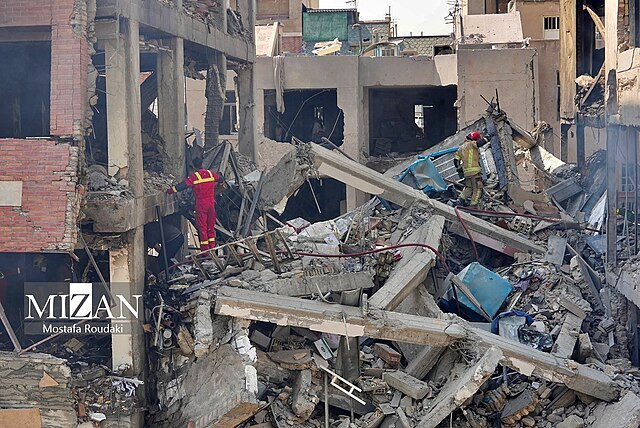Iran launched more than 100 drones toward Israel on Friday after Israeli forces carried out a series of coordinated strikes on nuclear and military sites across Iran, killing senior Iranian military leaders. The attack, which Tehran described as a "declaration of war," marks one of the most dangerous escalations between the two rivals in decades, raising fears of a broader regional conflict and sending global markets reeling.
"We can now confirm that the Chief of Staff of the Iranian Armed Forces, Commander of the IRGC, and the Commander of Iran's Emergency Command were all eliminated in the Israeli strikes across Iran," said Israel Defense Forces spokesperson Effie Defrin. Prime Minister Benjamin Netanyahu said the operation struck "senior scientists that advance development of nuclear weapons" and "nuclear installations," describing the assault as "very successful."
Iranian Foreign Minister Abbas Araghchi declared in a statement that "the aggression against Iran could not have been carried out without the coordination and approval of the United States," warning, "the U.S. government... will also bear responsibility for the dangerous repercussions."
The Israeli government, anticipating Iranian retaliation, declared a state of emergency. Sirens were activated across cities, and citizens were advised to prepare for prolonged periods in bomb shelters. Netanyahu confirmed the military campaign would continue "until the threat is removed."
Iran's Foreign Ministry accused Israel of violating Article 2(4) of the U.N. Charter and invoked Article 51, reserving "the legitimate and legal right to respond to this aggression." The ministry added that the U.N. Security Council must take "immediate action against this violation of international peace and security."
Crude oil prices surged more than 13% before paring gains, with Brent crude rising to $78.12 a barrel at one point. Dow futures fell nearly 500 points as investors fled to safe-haven assets, while markets in Asia and Europe tumbled amid fears the conflict could disrupt the global oil supply.
Iranian state-run Tasnim News reported fresh Israeli strikes Friday afternoon on a military airport in Tabriz. Meanwhile, President Donald Trump responded on Truth Social, writing, "Now everyone is dead, and it's only going to get worse but there is still time to stop this slaughter - before the next attacks, which are expected to be even more brutal. Iran must reach a deal. Just do it, before it's too late."
Israel's airstrikes came just days before U.S. and Iranian officials were scheduled to resume nuclear talks in Oman. The negotiations are now in jeopardy, with Iranian officials telling state media they will not attend. The strikes followed a resolution passed Thursday by the IAEA Board of Governors declaring Iran in breach of nuclear safeguards for the first time in nearly 20 years.
In televised remarks, Netanyahu said, "We struck the senior command... we struck nuclear installations." He added that Israel's operations will continue "for as many days as necessary," even as Iranian officials pledged vengeance.
Iran has appointed Ahmad Vahidi and Habibollah Sayyari to temporarily replace the slain commanders. Vahidi, a former Quds Force chief and interior minister, is linked to the 1994 bombing of a Jewish community center in Buenos Aires. Sayyari previously led the Iranian Navy.
Ayatollah Ali Khamenei vowed a "severe punishment," writing on X, "The powerful arm of the Islamic Republic's Armed Forces won't let them go unpunished." He also stated, "In the enemy's attacks, several commanders and scientists have been martyred. God willing, their successors and colleagues will carry on with their duties without delay."
U.S. Secretary of State Marco Rubio said Israel acted unilaterally and urged Iran not to target U.S. personnel. Iran, however, maintains Washington bears responsibility for the fallout. A National Security Council meeting has been scheduled at the White House for 11 a.m. ET as tensions intensify.






